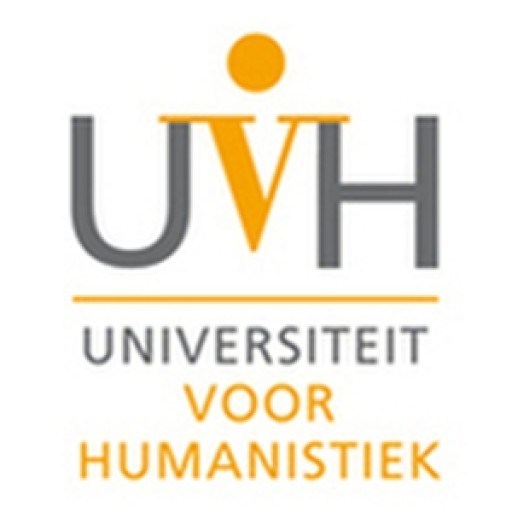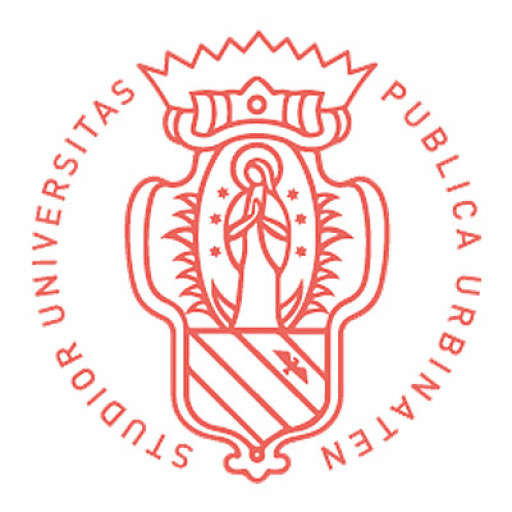Photos of university / #universiteitleiden
The Master's degree in Religious Studies at Leiden University offers a comprehensive and in-depth exploration of religious phenomena, beliefs, practices, and institutions across different cultures and historical periods. This program provides students with the analytical skills and theoretical frameworks necessary to critically examine religion's role in society, politics, and individual lives. The curriculum is designed to foster an understanding of diverse religious traditions, including Christianity, Islam, Hinduism, Buddhism, and indigenous faiths, along with contemporary religious movements and secular aspects of spirituality. Students will engage with interdisciplinary approaches drawn from history, anthropology, philosophy, and theology to develop a nuanced perspective on religion's multifaceted nature.
Leiden University’s Religious Studies master's program emphasizes both theoretical knowledge and practical skills, preparing graduates for careers in academia, cultural institutions, policy-making, and intercultural dialogue. Students have the opportunity to participate in research projects, internships, and fieldwork, enhancing their practical understanding of religious practices and communities. The program also encourages critical thinking about issues such as religious pluralism, secularization, fundamentalism, and the impact of religion on global conflicts.
The program is characterized by a vibrant academic community, with access to extensive resources including the Leiden University Libraries and specialized research centers. Students can choose from a range of electives to tailor their studies according to their interests, whether that lies in particular religious traditions, contemporary issues, or theoretical approaches. The program is delivered through a combination of lectures, seminars, and independent research, fostering an engaging and interactive learning environment.
Graduates of the Master's in Religious Studies at Leiden University are well-equipped to pursue further academic research or to enter professional fields where a deep understanding of religion is essential. The program emphasizes critical analysis, intercultural competence, and the ability to communicate complex ideas effectively. With a global outlook and a focus on contemporary challenges, Leiden’s Religious Studies program prepares students to contribute meaningfully to discussions on religion’s role in a rapidly changing world.
The Master's in Religious Studies at Leiden University offers students a comprehensive and in-depth exploration of religious phenomena, beliefs, practices, and their influence on societies throughout history and in contemporary contexts. The program provides an interdisciplinary approach, combining insights from history, anthropology, philosophy, and theology, enabling students to critically analyze religious traditions and their role in shaping cultural identities, politics, and social dynamics worldwide. Students will engage with a diverse range of religious movements, texts, and practices, gaining an understanding of their historical development and contemporary expressions. The curriculum includes core courses in religious theories, methodologies, and analytical tools, as well as specialized electives that focus on particular religious traditions such as Christianity, Islam, Hinduism, Buddhism, and indigenous faiths. Additionally, the program emphasizes the importance of fieldwork, textual analysis, and comparative studies to foster a nuanced understanding of religious phenomena. Students will have opportunities for engaging with current debates on secularism, religious tolerance, and interfaith dialogue, preparing them for careers in academia, policy-making, cultural institutions, or international organizations. Leiden’s renowned faculty members bring extensive research expertise and encourage a critical, analytical mindset. The program also integrates opportunities for international exchange and collaborative research projects, enriching students’ academic experience and global perspective. Graduates of this program are equipped with the analytical skills and cultural awareness necessary to understand and engage with religious issues across different societies and disciplines. Overall, the Master's in Religious Studies at Leiden University offers a thorough education designed to foster critical thinking, cross-cultural understanding, and scholarly excellence in the field of religious studies.
Admission requirements
Sufficient command of Korean. See website www.unileidenmasters.nl for details.
Other requirements
- minimum kennis (ISPAC: overige vereisten) Voldoende kennis van het Koreaans. Zie www.unileidenmasters.nl voor meer informatie.
- minimum kennis (ISPAC: overige vereisten) Sufficient command of Korean. See website www.unileidenmasters.nl for details.
- vooropleiding (ISPAC: vereiste vooropleiding) Bachelorgraad in Korean Languages and Cultures of een equivalente opleiding van een erkende universiteit.
- vooropleiding (ISPAC: vereiste vooropleiding) BA degree in Korean Languages and Cultures or its equivalent from a recognised university (see website www.unileidenmasters.nl).
The financing of the Religious Studies master's programme at Leiden University is primarily based on tuition fees paid by students. For Dutch and EU/EEA students, the tuition fee is typically set at a statutory amount, which is subject to periodic updates by the Dutch government. For non-EU/EEA international students, the tuition fee is generally higher, reflecting the university’s policies on international education funding. In addition to tuition fees, students have opportunities to fund their studies through various scholarships and grants offered by Leiden University, the Dutch government, and international organizations.
Leiden University provides several scholarship options for both Dutch and international students, including the Holland Scholarship, which supports outstanding international students from certain countries, and the Leiden University Excellence Scholarships for talented students. These scholarships often cover part or all of the tuition fees and sometimes include a living allowance. Additionally, students may explore external funding sources such as the Orange Tulip Scholarship Programme, Fulbright Program, and other bilateral agreements that provide financial aid for study expenses.
Apart from scholarships, students can obtain funding through student loans available in the Netherlands, specifically through the Dutch government’s student finance system, which provides loans and grants based on nationality and residency status. International students from outside the EU/EEA are typically ineligible for Dutch student finance but may qualify for funding from their home countries or international scholarship programs.
Leiden University also offers financial support in the form of work-study opportunities, including research assistantships or teaching assistantships, which can provide a source of income, although these are limited and competitive. Students are encouraged to plan their finances carefully and to explore all available options early in the application process. The university’s financial aid office provides guidance and assistance for students seeking funding for their studies in Religious Studies.
Overall, the financing of the Religious Studies master’s programme encompasses government tuition fees, scholarships, external funding options, and personal savings or loans. The university continuously updates its financial aid offerings to support a diverse student body, aiming to make higher education accessible and affordable for qualified students from different backgrounds.
The Bachelor's degree programme in Religious Studies at Leiden University offers students an in-depth exploration of global religious traditions, their historical development, and their impact on contemporary issues. The programme is designed to develop critical thinking, analytical skills, and a nuanced understanding of religion in various cultural and social contexts. Students will examine major world religions such as Christianity, Islam, Judaism, Buddhism, Hinduism, and indigenous spiritual traditions, alongside smaller or less commonly studied faiths. The curriculum covers topics like theology, religious practices, texts, rituals, and religious ethics, providing a comprehensive foundation in the academic study of religion.
Leiden University’s Religious Studies programme emphasizes a multidisciplinary approach, integrating insights from history, anthropology, philosophy, and political science to offer a holistic understanding of religion's role in society. Students are encouraged to think critically about religious phenomena, question assumptions, and explore diverse perspectives. The programme typically includes mandatory courses, electives, and research projects, allowing students to tailor their studies according to personal interests and career aspirations. Throughout the programme, students develop essential skills such as academic writing, verbal presentation, and qualitative research methods.
The programme is often taught by scholars who are experts in various religious traditions and methodologies, facilitating a rich learning environment. Leiden University’s reputation for research and academic excellence provides students with access to extensive resources, including a distinguished library and numerous online databases. The programme may also include opportunities for internships, fieldwork, or study abroad experiences, enhancing practical understanding and intercultural competence. Graduates of the programme are well-equipped for careers in education, academia, non-governmental organizations, cultural consultancy, journalism, or international relations, where understanding religious diversity and intercultural dialogue are valuable.
Admission requirements generally include a secondary school diploma equivalent to Dutch standards, with a good command of English, and an interest in history, culture, or social sciences. The programme's duration is usually three years for the bachelor's degree, after which students can pursue further studies in master's programmes related to theology, religious studies, or related fields. Leiden University’s Religious Studies programme aims to foster open-minded and informed individuals capable of engaging thoughtfully with the complex religious landscape of the modern world.







